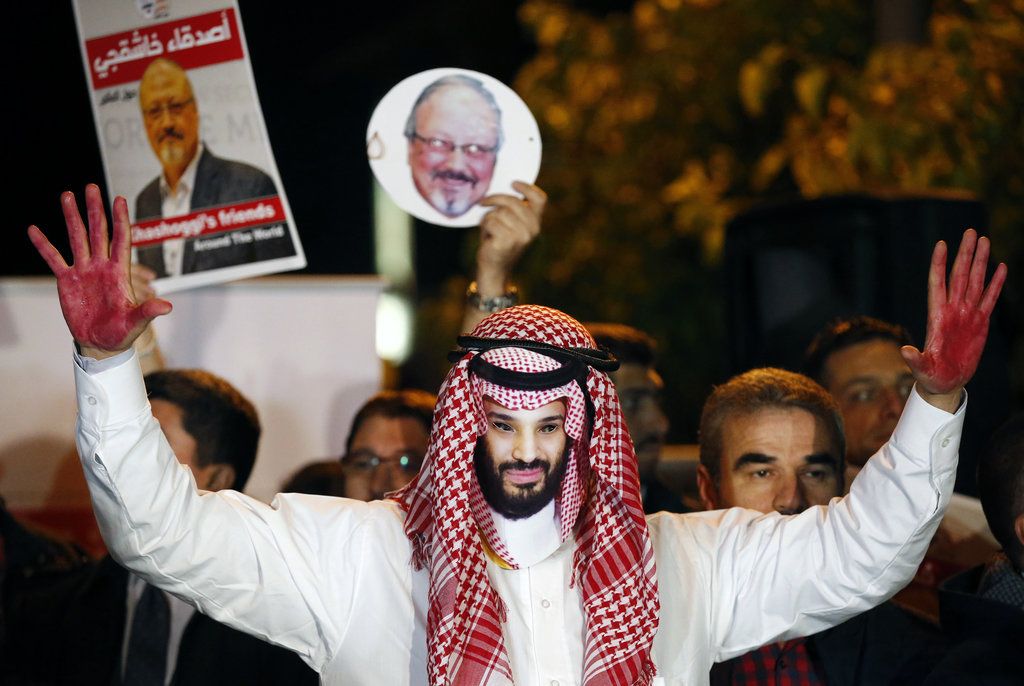Iran’s reaction to the murder of Khashoggi was more cautious than expected from the Islamic Republic’s diplomacy apparatus. And this came under circumstances where if, supposedly, a prominent Iranian-born journalist were murdered at the Iranian consulate in Turkey or any other country, the Saudi rulers wouldn’t wait for the dimensions of the saga to come to light and would mobilize all their media resources and other potentialities that money can buy to unleash a barrage of propaganda campaigns against Iran.
But why didn’t the Foreign Ministry of Iran capitalize on this heinous crime and take advantage of the Western media’s growing wave of protest against the incident?
This policy of patience seems to have pursued two objectives:
First, Iran did not want to fall victim to a possible behind-the-scenes collusion, and second, did not want to mitigate the global significance of a major scandal by joining those who were at forefront of this heinous crime. It goes without saying that if Iran had shown immediate reaction to the journalist’s murder and joined the governments denouncing the crime, Saudi Crown Prince Mohammed bin Salman would use it as a pretext to downgrade the severity of the crime as far as two rival states in the regions were concerned. He would try to downgrade this almost unprecedented tragedy, which must only be the handiwork of reactionary fascists, to a normal incident that has happened during the course of soft war between two regional governments.
So one can say the Islamic Republic chose to remain silent and watch its arch-rival being disgraced by the entire world.
Still, the passive and delayed reaction of Iran’s diplomacy apparatus is a two-faced coin that can be criticized as well. Some politicians, especially those who are well aware of the true extent of the crimes committed by Saudi Arabia across the Middle East, aptly name the Saudi regime a parvenu dictator which has pinned its hopes on petro-dollars and the unflinching support of the US government, and which slaughters hundreds of persons like Khashoggi every day in the face of the deadly silence of powerful governments and major media outlets across the world. If we believe that the dismembered journalist was not once a journalist like a Yemeni or Syrian child, and that he was a human being in the first place, it will not be appropriate to hesitate to get on board with those who seek to bring to light those with Khashoggi’s blood on their hands.
Mohammad Saleh Jokar, a deputy commander of Iran’s Islamic Revolution Guards Corps (IRGC), was among the major critics of the Foreign Ministry for its passive stance on Khashoggi’s murder.
The top commander said the murder created an opportunity to bring to light the crimes committed by Riyadh, and Iran should have gotten on board with other countries in revealing the true colours of the Saudi regime.
“Unfortunately, our diplomacy apparatus is not taking advantage of it (Khashoggi’s murder) well, but other countries are capitalizing on it very well in line with their interests,” he said.
“Our diplomacy apparatus should review the different dimensions of this crime and make the people of the world understand that the murder of Khashoggi was just one of thousands of crimes by the Al Saud regime, and that such crimes are being repeated in Yemen and other countries every moment,” said the top commander.
“The assassination of Khashoggi prompted Saudi rulers to take blind measures and, for example, put the name of [Major General] Qassem Soleimani and the IRGC on the list of supporters of terrorism to divert public opinion,” said Jokar in an interview with Mehr News Agency.
“Of course, such actions are not without precedent. The Americans have also adopted such measures before, and Saudi Arabia has followed suit and launched this psychological warfare in the region,” said the commander.
He said Saudi Arabia and Bahrain have put the names of general Soleimani and the IRGC on the lists of sponsors of terrorism.
“By assassinating Khashoggi, Saudi Araba has got bogged down in a quagmire, and that is why it does whatever it can to save itself,” said the top commander.
He then highlighted that the US and Saudi and Bahraini regimes have the blood of innocent people of Yemen, Bahrain and Syria on their hands.
“The murder of this journalist is just one of many crimes committed by Saudi Araba and its supporters that has received media attention, but we are witnessing innocent people being killed in Yemen and Bahrain every day. These regimes have always violated the rights of the regional nations and they do not believe in the principles of freedom and free thinking,” he noted.
He said the Al Khalifa and Al Saud regimes take inhumane actions under the support of the US.
